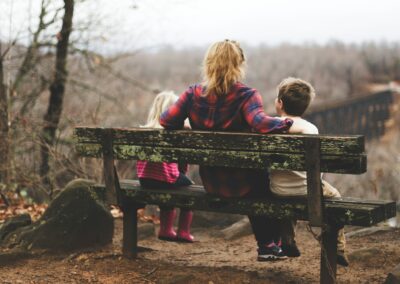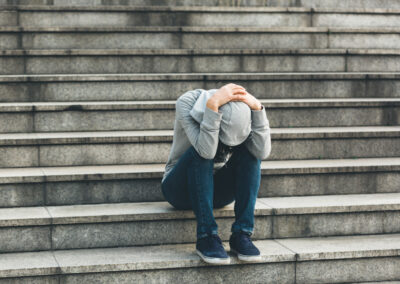It’s common knowledge that if you want to get a good night’s rest, you should stay away from caffeine before trying to sleep. Typically, people drink caffeine when they need a boost of energy to keep them going. That’s why morning coffee, which is packed with caffeine, is one of the most popular ways to start the day.
It’s also why people consume energy drinks and soda in the afternoon when they’re feeling drowsy. Each of these beverages is loaded with caffeine and sugar and is meant to wake you up and increase your energy levels. Therefore, it goes without saying that consuming these caffeinated drinks before trying to sleep is likely going to keep you awake.
However, if you made the mistake or conscious decision to consume caffeine late in the evening and now you’re trying to sleep, you’ve come to the right place. This article will examine the best ways to fall asleep after drinking coffee and other caffeinated beverages, as well as why it’s so difficult.
Understanding the Effects of Caffeine on Sleep
When it comes to the relationship between caffeine and sleep, the two don’t get along at all. Caffeine, which is found in chocolate, coffee beans, tea, and much more, is a stimulant that has a profound impact on your brain and nervous system. Caffeine increases the flow of certain hormones, such as adrenaline and cortisol, and decreases the flow of others, such as serotonin and melatonin.
Unfortunately, if you want to relax and fall asleep, you need an increase in serotonin and melatonin and a decrease in adrenaline and cortisol.
As a stimulant, caffeine also increases your heart rate and brain activity, which makes it impossible to fully relax. Here are some of the other effects of caffeine that are great for keeping you awake but terrible if you’re trying to sleep.
- Increases your body temperature
- Gets your mind buzzing
- Speeds up your urinary system, making you need to urinate more frequently
- Can make you feel dehydrated and dizzy
- Increases your heart rate and blood pressure
- It can lead to headaches, irritability, and anxiety
- It can lead to the shakes or trembling hands
As you can see, caffeine does the exact opposite of what you want and need when you’re trying to fall asleep.
Caffeine and Sleep Depth
In addition to these impacts on your physical body, caffeine also has a negative impact on your mind and its ability to relax. As a result, you won’t be able to fall into as deep of a sleep as you otherwise would without caffeine. The deep sleep phase, known as Stage 3 or N3, is when your mind and body undergo the most growth and recovery. Therefore, not getting enough deep sleep will result in less growth and recovery and have you feeling less rested in the morning.
The sad thing is that you don’t need to consume a lot of caffeine for it to restrict your sleep depth. In fact, a single cup of coffee per day is enough to set you back.
Awareness and Acceptance
Unfortunately, many people with sleep disorders who have trouble falling asleep don’t realise that it’s probably because of their caffeine intake. Therefore, the first step to regaining your ability to sleep after caffeine is to realise what a serious problem it is. Once you understand the dangers of consuming caffeine as it relates to sleep quality, you’ll better know how to cope with it.
Practical Steps For Better Sleep Post Caffeine Intake
If you rely on caffeine to get you through your day but don’t want it to disrupt your sleep cycle, here’s what you need to do.
Dietary Adjustments
The first and most obvious way to not let caffeine ruin your bedtime is to consume less of it. You can do this by limiting yourself to one cup of coffee per day or watering down your caffeinated beverages. It’s also important to drink plenty of water throughout the day, as it will help flush caffeine out of your system.
Breathing Exercises
Next, and more importantly, you should perform breathing exercises, both before you go to bed and while you’re in bed if you’re struggling to sleep. Deep breathing exercises, where you inhale for 3 to 6 seconds and exhale for twice as long, will help calm your nervous system. Because caffeine sends your nervous system into overdrive, this is a crucial step.
Relaxation Techniques
Finally, it’s a good idea to incorporate relaxation techniques, such as Sophrology, into your evening routine. Practising Sophrology in the form of a body scan and tension release exercises are great tools to help you relax and find sleep. It’s also helpful to visualise yourself in a peaceful environment and think of images and thoughts that bring you peace and calm, another component of Sophrology.
Additional Strategies For Better Sleep
If the strategies listed above aren’t doing the trick, it’s probably because you haven’t been able to down-regulate your nervous system. Down-regulating your nervous system is the key to successfully falling asleep. As long as your nervous system, which consists of your brain, spinal cord, and nerves, is activated, you won’t be able to relax and fall asleep.If you find yourself in this situation, you could certainly benefit from BeSophro’s 10-mins to Sleep Like a Pro online series. This life-changing course will teach you how to use meditation, deep breathing, gentle exercises and much more to help you fall asleep. Most of all, it will teach you everything you need to know about balancing your nervous system.
Natural Supplements and Relaxing Activities
In addition to mental exercises, there are also certain dietary and lifestyle adjustments you can make that will help you fall asleep after drinking coffee and other forms of caffeine.
Supplements
There are plenty of natural supplements that can increase your ability to fall asleep. While melatonin and hormonal supplements are some of the most popular, they aren’t necessarily the best. Instead, you should look for supplements that contain magnesium, chamomile and other herbs and minerals that naturally promote relaxation.
Massages or Bathing
In addition to feeling incredible, massages and/or baths are also great tools to help you fall asleep. Massages and baths help relax muscles that are sore or tense and aren’t letting you fall asleep. This, in turn, will help calm and down-regulate your central nervous system.
Listening to Calming Music
While it won’t work for everyone, listening to calming and soothing music can also help balance your nervous system.
Physical Activity
Finally, getting a little bit of exercise during the day will go a long way in helping you relax at night. Physical activity, whether it’s swimming, jogging, lifting weights, or anything else, is a great outlet for excess energy. While you might not enjoy it at the moment, your body will thank you in the evening when you’re able to fall asleep more easily.
Final Thoughts About How to Sleep After Caffeine Consumption
While caffeine is great at helping you feel awake and alert throughout the day, it will make you suffer at night when you’re trying to fall asleep. However, because of how popular caffeinated beverages are, completely cutting them out may not be practical.If you can’t give it up, it’s important to recognise and accept that caffeine will impact your sleep quality and could lead to poor sleep quality. Therefore, it’s important to monitor and restrict your caffeine intake and find ways to down-regulate your nervous system at night. By following the practical tips and tricks listed above and trying Sophrology, you’ll be sleeping like a pro in no time!



